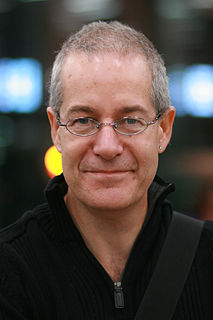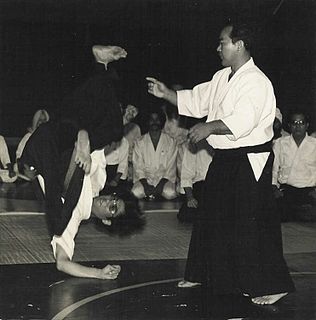A Quote by Massimo Pigliucci
"Fate permitting" is a standard Stoic phrase meant to remind ourselves that planning things is up to us, but the ultimate outcomes are not under our control. It helps us to develop an attitude of equanimity toward the universe. We should very much try to change things for the better, that's the whole point of the Stoic discipline of action.
Related Quotes
The Stoic discipline of action, which is connected to the virtue of justice, says that we ought to treat others fairly and we should engage in social and political activity. This is further supported by the Stoic idea of cosmopolitanism, and by the famous "circles of concern" identified by Hierocles, who counseled that we should refer to other people as brothers and sisters, to constantly remind ourselves that we are members of the same human family.
If we have goals and dreams and we want to do our best, and if we love people and we don’t want to hurt them or lose them, we should feel pain when things go wrong. The point isn’t to live without any regrets, the point is to not hate ourselves for having them… We need to learn to love the flawed, imperfect things that we create, and to forgive ourselves for creating them. Regret doesn’t remind us that we did badly — it reminds us that we know we can do better.
I happen to believe the world will change only when we change ourselves. And that starts with finding ourselves: learning to quiet the clamor in our minds and the voices of everyone around us and move toward what feels right – toward the things we know, for reasons we can’t explain, that we’re mean to do, the things that makes us feel alive.
The process is really what you have to do day in and day out to be successful, we try to define the standard that we want everybody to sort of work toward, adhere to, and do it on a consistent basis. And the things that I talked about before, being responsible for your own self-determination, having a positive attitude, having great work ethic, having discipline to be able to execute on a consistent basis, whatever it is you're trying to do, those are the things that we try to focus on, and we don't try to focus as much on the outcomes as we do on being all that you can be.
The important element is the way in which all things are connected. Every thought and action sends shivers of energy into the world around us, which affects all creation. Perceiving the world as a web of connectedness helps us to overcome the feelings of separation that hold us back and cloud our vision. This connection with all life increases our sense of responsability for every move, every attitude, allowing us to see clearly that each soul does indeed make a difference to the whole.
He should have said something, why hadn't he? Costis wondered. In fact, the king had. He had complained at every step all the way across the palace, and they'd ignored it. If he'd been stoic and denied the pain, the entire palace would have been in a panic already, Eddisian soldiers on the move. He'd meant to deceive them, and he'd succeeded. It made Costis wonder for the first time just how much the stoic man really wants to hide when he unsuccessfully pretends not to be in pain.
Our environment, the world in which we live and work, is a mirror of our attitude and expectations. If we feel that our environment could stand some improvement, we can bring about that change for the better by improving our attitude. The world plays no favorites. It's impersonal. It doesn't care who succeeds and who fails. Nor does it care if we change. Our attitude toward life doesn't affect the world and the people in it nearly as much as it affects us.
The battle for self-discipline may leave you a bit bruised and battered but always a better person. Self-discipline is a rigorous process at best; too many of us want it to be effortless and painless. Should temporary setbacks afflict us, a very significant part of our struggle for self-discipline is the determination and the courage to try again....Eternal life in the kingdom of our Father is your goal, and self-discipline will surely be required if you are to achieve it.

































